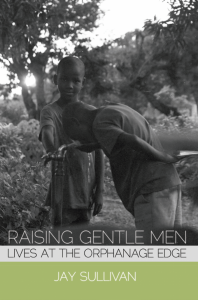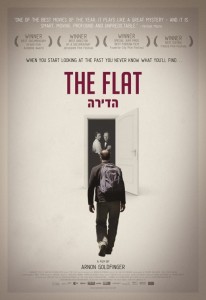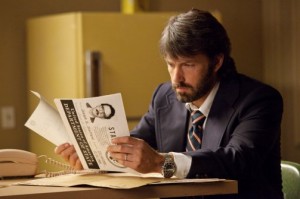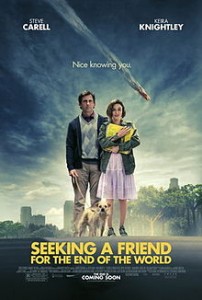Interview: Craig Robinson of “Peeples”
Posted on May 8, 2013 at 8:00 am
Craig Robinson is one of the funniest people alive and his performances have been the highlights — and sometimes the only bright spots — in films like “Hot Tub Time Machine,” “Miss March,” and “Pineapple Express.” It is a lot of fun to see him in his first leading role in “Peeples,” the story of a music teacher who meets his girlfriend’s very intimidating family for the first time. And it was a lot of fun to get a chance to talk to him when he came to Washington to host a screening of the film. 
When did you first know you were funny?
I was a kid, and we would ride in the car. My father is an attorney and his father died when he was 12, so he was the man of the house ever since he was very young, a “my way or the highway” kind of thing. To make him laugh was the — what’s the Monty Python thing? — the holy grail. When we would be in the car and I’d be in my corner and acting silly, there was this natural thing that came out. I never acknowledged that I was funny but there was definitely something that felt good about making my parents laugh.
That’s a lot like what happens in the movie, where your character has to impress a very stern, “my way or the highway” judge.
Exactly! David Alan Grier, who is fearless, amazing, funniest man on the planet it my eyes. Going up against him was one of the best things I’ve done in my career.
You got to bring some of your experience as a music teacher to this role, not just singing a funny toilet training song to kids but performing a 70’s R&B disco number in a headdress. How did you develop those moves?
For the dance number, there’s a musician-singer from back in the day called Sylvester, very flamboyant, a huge gay icon. I watched what he did and was inspired to go with that kind of vibe, to perform and go for it and not care. It was fun to go into that little mindset of dancing and being free and being so hypnotized by the headdress. And they only made one, so when I got little carried away, it went “CRUNCH,” but they were able to salvage it and make it work.
Was it a big challenge to take on a lead role for the first time?
I couldn’t have asked for a better cast or a better director to step out. We all had each other’s back. And I couldn’t have asked for a better role. I had to fall in love with Kerry Washington. Check! I had to learn from David Alan Grier, show him stuff I’ve stolen from him. Check! Tina Gordon Chism, first-time director, so we’re leaning on each other. Check! It was all these wonderful challenges as we all worked together to push that boulder up the mountain called “Peeples.” And we just had a blast doing it. The biggest challenge was not allowing the pressure to get to me. Okay, it’s your first leading man — but not allowing that to get in. It was there every day biting at me but I’m not going to let that pressure come in and mess with me. I’m just going to do the work.
I liked the way your character didn’t go to the easy silly place of insecurity. He knew who he was.
He’s a “kounselor with k,” and he loves his girl. He keeps it real. The family has all these secrets but he keeps it real. He knows he’s lovable, so let’s go meet the family and get this marriage going.
What do you hope audiences will take away from this film?
To laugh and be closer. And to just learn to be yourself, and own that.
How did you and Kerry Washington work out the chemistry of your characters’ relationship?
We went on a couple of “dates” to figure out who this couple was. She’s such a natural in everything she does. And she’s brilliant, an amazing person all around, and the more you know her, the more you love her. She can speak different languages, she can dance, she can sing. You’re just going to be a bigger fan once you meet her. She’s super-fantastic. I could not have picked a better leading lady. I would do anything she says.
What’s the best advice you ever got about acting?
Every scene is a love scene. No matter if you’re fighting or whatever, why else would you be there if you didn’t love each other?




